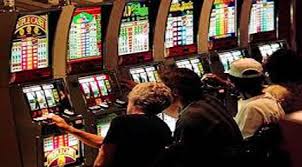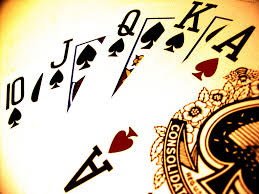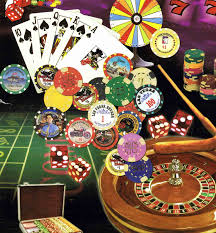Rehab Articles

compulsive gambling, treatment for compulsive gambling
1. Dealing with compulsive gambling can be just as devastating as addiction, but there are options when it comes to treatment for compulsive gambling. In order to get help all you have to do is admit that you have a problem and seek treatment, but this step can be very difficult for some people.
2. Set a date to stop your compulsive gambling, and count down until this date arrives. This gives you a chance to get motivated and strengthen your resolve, and this means that you will be less likely to give in when you start to crave the excitement and rush that you get when you gamble.
3. Compare the options that you have when it comes to treatment for compulsive gambling. Look at each program and determine what methods and techniques are used in your treatment. If these do not include individual counseling to root out the causes of your compulsive gambling then a program may not be very effective and you could end up needing further treatment later on as a result.
4. If you have a problem with compulsive gambling than an extended support network is required. This is in addition to treatment for the compulsive gambling. This support network can help you through the toughest times, offering support and encouragement when you feel ready to cave and hit the casino floor once again.
5. If you relapse then seek treatment for compulsive gambling again, and do this until you finally succeed. You do not have to let compulsive gambling ruin your life.
Rehab Articles

Compulsive gambling is a very real problem, one that usually requires professional help. There are some facts about this condition that everyone should understand. If you have a compulsive gambling problem then this will impact every area of your life, and it can create a devastating cycle that only ends when you are ruined in every way if you do not seek professional help. For some individuals the act of gambling can stimulate the same area of the brain that cause drug or alcohol abuse, and this is the considered the reward center in the brain. When the reward center is stimulated you feel pleasure and this leads to addiction, whether you are using a substance or engaging in other activities. The only way to stop this addiction is with professional treatment that addresses the specific causes in each situation.
There are many symptoms that can indicate a problem with compulsive gambling. These symptoms include:
-
Frequent financial problems due to gambling losses. When you gamble money that you can not afford to lose, like your mortgage money or grocery money needed to feed your family, then you may have a compulsive gambling problem.
-
Frequently lying about gambling or the money that was lost is another indication that you need help.
-
If you try to borrow money from friends and family in order to keep gambling then this activity is a problem and help is needed.
-
Stealing in order to fuel your compulsive gambling and addiction is another sign that there is a problem you need to address.
There is help for compulsive gambling, and professional treatment can help you get your life back on track!
Rehab Articles

Compulsive gambling and cocaine addiction have similar effects on decision making in the brain according to a new research study. In the study researchers from the University of Granada compared the differences and the similarities in the brain function and the psychological profile in individuals who suffered from either compulsive gambling or cocaine addiction. The compulsive gambling group showed abnormalities in brain function that were comparable to the abnormalities of the brain that were shown by those with a cocaine addiction. The brain areas affected in both groups involved the anterior cingulate and part of the prefrontal cortex, and these areas are known to provide impulse control in people. The ability of both groups to make good decisions were compromised by these abnormalities according to the researchers.
According to José César Perales and Ana Torres, the main investigators for the study, “these bad decisions affect the individuals’ ability to recognize and evaluate loss, even when this is not financial loss.” What the researchers found very interesting was that emotion seemed to make the problem worse and appeared to increase the poor decision making, and negative emotions had a larger impact than positive emotions. Loss of impulse control in both groups that were involved in the study were similar, regardless of whether the research subject was a compulsive gambler or a cocaine addict. Hopefully these findings will eventually lead to more effective treatment for both problems. Does this mean that both of these conditions are medical disorders though? What are your feelings on this?



